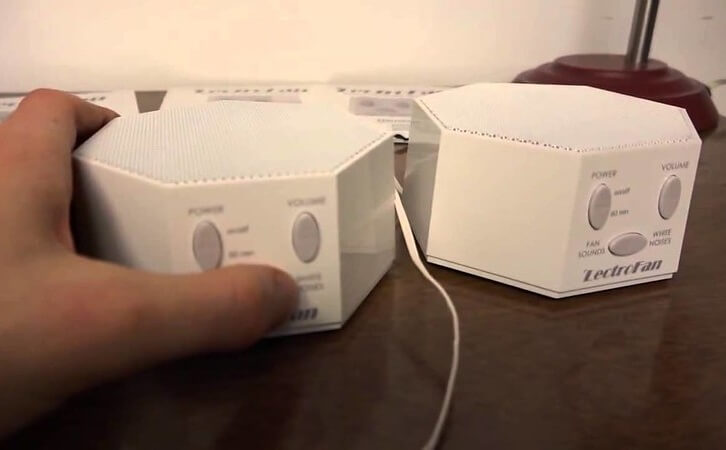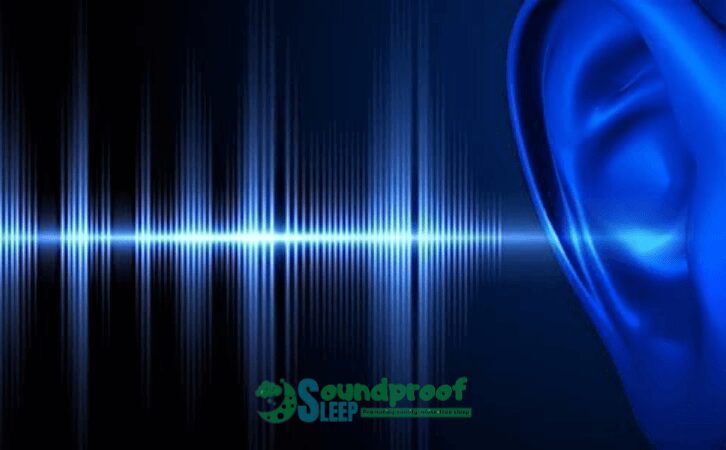Sleep is important for development, health, and overall well-being. Noise disturbs sleep, both directly and indirectly. In this modern era, noise pollution has risen and is becoming generally accepted both in developed and developing countries. However, whether the noise that disturbs sleep comes from your home or outside due to construction, transportation, or other sources it is unwelcomed and can have several unwanted effects.
In this article am going to share how noise can affect your sleep and overall health and how to effectively manage it. Enjoy.
- Effects of Noise on Sleep
- Using Sound/Noise to Your Advantage
- How to Control or Minimize Outside Noise
[sta_anchor id=”effects-of-noise-on-sleep”]Effects of Noise on Sleep[/sta_anchor]
Noise during the night-time can cause sleep deprivation, especially at the light stages of sleep. A report by National Academies Press (US) estimates that 50-70 million Americans chronically suffer from sleep disorders and sleep deprivation. This, in turn, hinders their daily functioning and affects their overall health and longevity. Long term effects of sleep deprivation and disorders include an increased risk of hypertension, obesity, heart attack, diabetes, depression, and stroke.
According to an article by Demian Halperin on Environmental noise and sleep disturbances, he notes that noise can cause poor sleep, which in turn can lead to cardiometabolic, psychiatric, and social negative outcomes both in children and adults. People who struggle with environmental noise during the night can also suffer from daytime sleepiness and tiredness, mood changes, annoyance, and overall decreased cognitive performance and well-being.
Noise also lowers sleep satisfaction. When you are asleep, your brain will continue to pick up and process sound. Loud noise can wake you up even from a deep slumber. When trying to fall asleep, noise can cause moving, twitching, or shifting between the stages of sleep. Overall, these activities can lead to a feeling of lower sleep satisfaction and sleepiness.
[sta_anchor id=”using-noise-sound-to-your-advantage”]Using Sound/Noise to Your Advantage[/sta_anchor]
Although research is more focused on the negative and adverse effects of noise, all is not lost. Sound or noise can also have positive attributes on the health and well being of people. This can be made possible by the use of sound machines. Sound machines, either white, pink, or brown, can help a person sleep better and faster.
According to a study published in the Journal Of Caring Sciences, it was recommended that white noise be used to drown environmental noise, and in effect, maintain and improve the quality sleep in patients admitted to the Coronary Care Unit (CCU). Another older study by a team of researchers found out that the use of white noise in an intensive care units (ICUs) reduced the difference between background and peak noise and thus helped reduced awakenings in patients.
Sound machines do not eliminate background noise. They help in drowning disruptive noise making it less noticeable to you. Getting a good sound machine can no doubt help you sleep better.
[sta_anchor id=”how-to-control-minimize-outside-noise”]How to Control or Minimize Outside Noise[/sta_anchor]
By minimizing noise and distracting sounds in our homes and specifically the bedroom, you can be a step closer to better sleep. While noise is unavoidable, limiting the sounds when sleeping will help you get improved sleep. Here are some of the ways you can control or minimize outside noise in the bedroom.
1. Wear Earplugs
When you do not have complete control over the source of noise around you, earplugs are the best choice. Earplugs can help block out most background noise for a comfortable night’s sleep. When shopping for earplugs, be sure to look for comfortable ones you can wear all night.

How well an earplug blocks sound will depend on its Noise Reduction Rating (NRR). Foam earplugs are usually the best at blocking out noise, while wax and moldable silicone are more comfortable. If you would like to still be aware and hear important sounds like a child crying or the alarm, pick earplugs with a lower than 30 dB NRR.
2. Use Sound Machines
Apart from drowning out noise, sound machines also provide soothing sounds that can help you sleep faster and improve the quality of sleep. Sound machines can either be white, pink, or brown noise.

Sound machines are better designed to provide constant noise. However, air conditioners, radio static, or a running fan can also provide sounds similar to white noise.
3. Use Headphones or Noise Cancelling Earbuds
Headphones and earbuds can be used to block out most kinds of noise like traffic noise, people talking, or construction noise. With headphones/earbuds, you can play white noise, your favorite music, or relaxing sound to help you sleep better. Not all headphones or earbuds are good for sleeping. While back sleepers might have it easy to sleep with any type of headphone or earbud, side sleepers might have a hard time sleeping with most headphones and earbuds.
Specially designed and dedicated headphones and earbuds can help both back and side sleepers sleep more comfortably. One such product is the SleepPhones specifically made for sleeping. These headphones have a unique headband that allows them to be comfortable for sleeping while still enjoying music and other sounds. See our best headband headphones.
4. Position Your Bed Better
Windows are where most noise enters the bedroom. Walls facing the street can also let in noise. Placing your bed strategically away from the windows and outside walls is one of the ways to avoid the likelihood of outside noise disturbance. Upgrading your windows, sealing drafts, adding materials to the walls can help keep sound out.
5. Soundproof Your Bedroom
Using earbuds/headphones, earplugs, sound machines, or strategically placing your bed might not work for you. Soundproofing your bedroom is one of the ultimate ways you can enjoy a noise-free sleep comfortably. Completely blocking out noise is not possible, but you can block out most of it. Floors, walls, doors, and windows all need to be properly soundproofed for better noise isolation. If you want to get started, check out our informative guide on how to soundproof a bedroom.
Wrapping Up
With developing cities, 24-hour economies, and other environmental factors, noise is expected to pose an increasing problem. While noise seems to be unavoidable in the future, taking simple steps now can help guard against unwanted noise for a night of better and more enjoyable sleep.
Do you have a comment, suggestion, or a question? Please reply below, and let’s continue this discussion.

